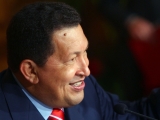Venezuela's Poll
5 Oct 2010
By Markus Schultze-Kraft for ISN
For the first time since 2005, when the political opposition committed the grave mistake of boycotting the National Assembly election, both President Hugo Chávez’s United Socialist Party of Venezuela (PSUV) and 10 parties of the Democratic Unity Table (MUD), the broad opposition alliance, will be represented in parliament. While the government managed to garner a simple majority thanks to a widely criticized reform of Venezuela´s electoral law in 2009, this is no small feat in a country that in recent years has suffered from a steady erosion of liberal democracy on account of the Bolivarian Revolution, as well as from pronounced disarray among its opponents. It is also a significant development in view of the forthcoming presidential polls in December 2012 and the prospects for a peaceful transition to a post-Chávez government.
According to the preliminary results, PSUV and its junior partner, the Venezuelan Communist Party, won 98 of the 165 National Assembly seats. Ten of 26 opposition parties grouped under the MUD obtained a total of 65 seats, and the Fatherland for All (PPT) party of PSUV dissident Henry Falcón secured two. At 66 percent, voter turnout was high and – in the absence of international election observer missions - no major complaints about irregularities have been put forward so far by specialized Venezuelan civil society organizations, such as Súmate.
Victory for all?
As was to be expected, both sides have claimed victory. Chávez and his followers are making every effort to downplay the fact that his party proved unable to secure an absolute majority in the National Assembly. The opposition, in turn, is driving home the point that it actually beat the government in terms of the number of votes the MUD candidates received nationally, but which then did not translate into a proportionate representation in parliament because of the 2009 electoral law´s provisions. The new law indeed increased the chances of a PSUV parliamentary gain: it is designed to produce an over-representation of rural federal states, in which the opposition has a relatively weak presence, and it cuts back on the formerly existing proportional representation by increasing the number of parliamentarians elected by majority rule.
While the opposition has good reasons to make these points, many electoral systems around the globe face similar challenges of determining parliamentary or congressional representation in a fair manner. Hence, at the current juncture it is more important that the MUD urgently focus on developing a sound programmatic platform and parliamentary strategy, so as to position itself strongly vis-à-vis the Chávez government in the National Assembly. This opportunity must not be lost and the opposition has much work to do.
It is true that the Chávez regime is in a weaker position today than it was at the time of the National Assembly polls in 2005. Skyrocketing crime and drug-trafficking and patent government mismanagement of the electricity sector and the provision and distribution of basic foodstuffs, to name just a couple of the most salient elements of what has turned into a serious crisis of governance, are undermining citizen confidence in Chávez. Popular support for the president has been waning for some time now, but his regime still commands a “powerful minority”, as one observer in Caracas put it.
But the relative weakness of the government must not lead the opposition to overlook its own shortcomings, which by all accounts are still pronounced. As another Venezuelan analyst pointed out, “reaching agreement on single MUD candidates in all voting districts across the country has been nothing short of a miracle”. In addition, only a few of the opposition candidates were actually elected in primaries, reflecting problems of democratic procedures within the MUD that have to be remedied.
On the programmatic front, too, the opposition has an enormous amount of work to do. Venezuela´s economic, social and security challenges are of such a magnitude that only a concerted and broadly participative effort at designing adequate policy responses can stand a chance of bringing about positive change. While some of the parties grouped in the MUD are doing a better job today than some years ago at reaching out to large underprivileged groups of the population, there clearly is still much room for improvement. Finally, in view of the December 2012 presidential elections the opposition continues to be at a disadvantage vis-à-vis Chávez: There is no potential opposition candidate in sight who would be able to equal the president´s charisma.
The 26 September legislative poll has increased Venezuela´s chances to correct course and tackle the country´s large problems, including deep politico-ideological polarization, in a democratic fashion. This can only be achieved, however, if Chávez, his followers and the opposition stop pursuing zero-sum games and start taking seriously their legislative responsibilities in the new National Assembly. The period 2011-2012 will be a telling and all-important prelude to the presidential contest in December 2012.

